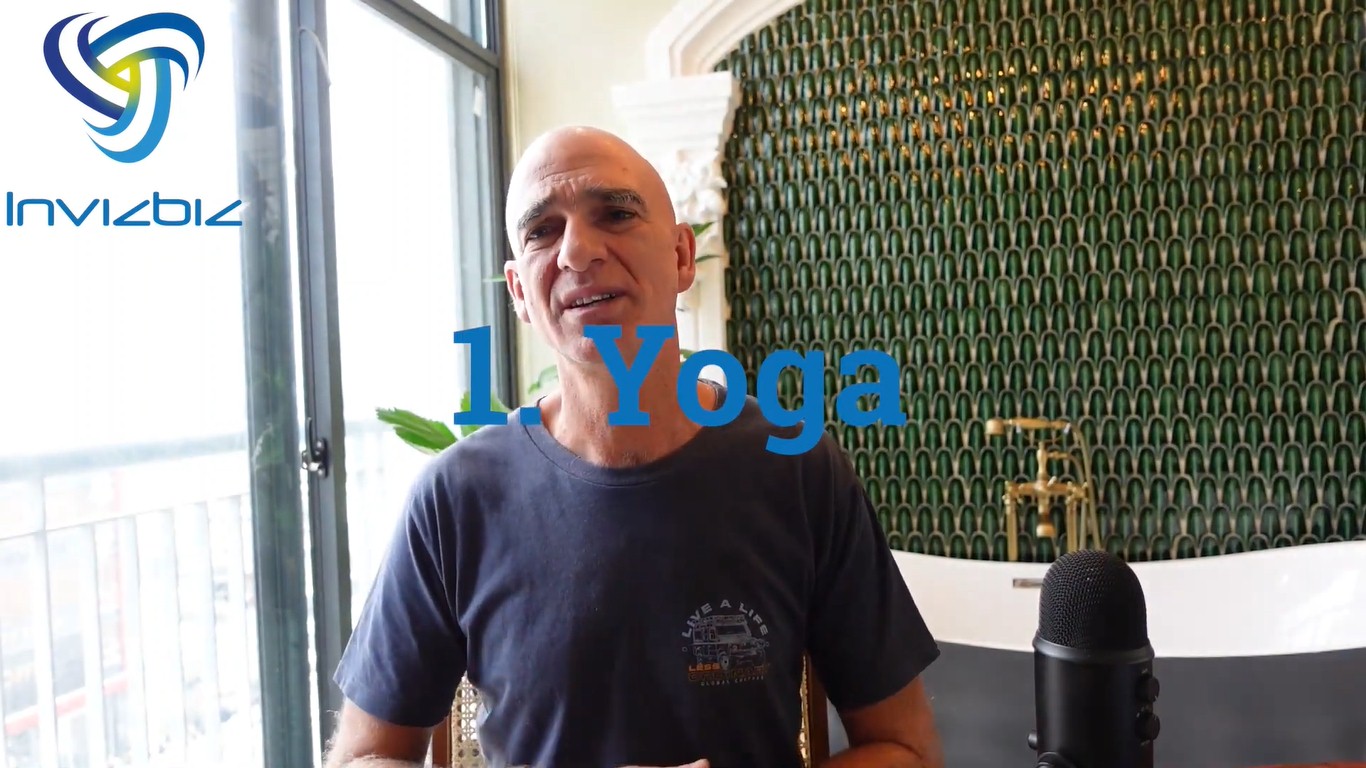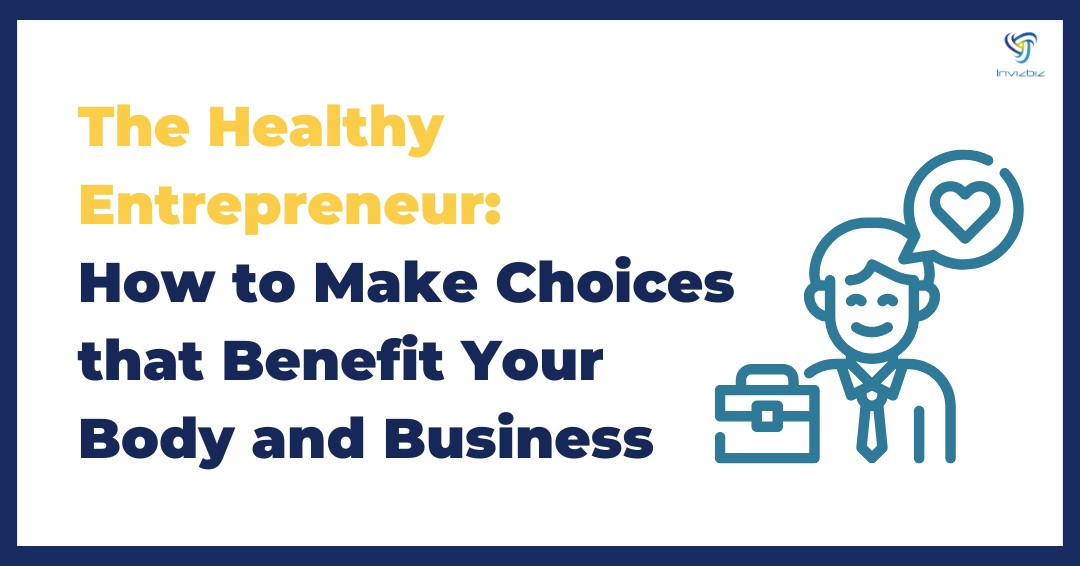 In today’s competitive business world, it’s more important than ever to be at your best. That means not only beingphysically and mentally fit, but also having a strong work ethic and a positive attitude.
In today’s competitive business world, it’s more important than ever to be at your best. That means not only beingphysically and mentally fit, but also having a strong work ethic and a positive attitude.
In a world where deadlines are tight and stakes are high, it’s not just your business skills that need to be on point. Your health—both mental and physical—plays a significant role in your overall performance. Moreover, men and women have unique health needs that hinge on various factors such as age, lifestyle, and body type. So, how do you ensure you’re taking the right steps to stay fit, healthy, and mentally agile?
Know What Your Body Needs
Personalized Approach to Health
Experts like Dr. David Agus emphasize that a one-size-fits-all approach rarely works when it comes to health. Investing time to understand your body’s unique needs is essential. So, what’s the first step?
If you’re serious about your well-being, consult healthcare professionals for a full health screening. These experts can give you insights into specific aches and pains, allowing you to address issues proactively. There are also many different types of personalized approaches to health, but some of the most common include, personalized medicine, nutrition and exercise.
For example, a person with a genetic mutation that increases their risk of developing cancer may be offered different screening and treatment options than someone without the mutation. A person with diabetes may also need to follow a low-sugar diet, while someone with celiac disease needs to avoid gluten. Meanwhile, personalized exercise can be applied to people who is just starting to exercise and may need to start with low-impact activities, while someone who is more active may need to focus on strength training or endurance training.
Benefits of Understanding your Physical Well-being
Understanding and prioritizing your physical well-being is essential for success in business. It can have multiple benefits, including:
Being aware of your body and its needs can help you make better choices regarding your health and well-being. This, in turn, can positively influence your decision-making abilities in business.
Reduced Absenteeism and Presenteeism
Taking care of your body can help prevent illness and injury, reducing the likelihood of taking sick days or working while unwell (presenteeism). This contributes to higher productivity and lower absenteeism rates.
Enhanced Performance at Work
When you feel physically well, your energy levels increase, allowing you to perform better and be more productive in your work. Proper self-care can lead to improved focus, efficiency, and overall performance.
Stronger Mind-body Connection
Understanding and listening to your body can help build a stronger mind-body connection. This awareness allows you to recognize signs of stress, fatigue, or other physical needs, enabling you to respond appropriately and proactively.
Improved Work-life Balance
Knowing your body helps you make better choices about your work-life balance. By recognizing when you need rest, relaxation, or time for personal activities, you can maintain a healthier and more sustainable approach to work.
Boosted Confidence
Taking care of yourself physically can increase your self-confidence. When you feel good in your own skin, you are more likely to trust your abilities, make bold decisions, and approach challenges with a positive mindset.
The Myth of Rigorous Workouts
When people ask how I maintain an active lifestyle at 57, they often assume a rigorous workout regimen is the secret sauce. However, the reality is far from it. For many, the idea of “exercise” paints images of monotonous repetitions in a gym. But staying active doesn’t necessarily mean pumping every day. In fact, I have a home gym, an electric bike, and weights but they serve more as options rather than obligations. The important takeaway is to have a regular, enjoyable physical activity.
Aristotle had it right—excellence is about habit, not isolated acts. Simple but regular physical activities can be as beneficial as strenuous workouts. Just find something you love to do, and make it a routine.
Movement as a Way of Life
 When it comes to maintaining my health, I swear by my daily yoga routine. Yoga is not just a physical exercise; it’s a mind-body practice that has been proven to improve mental health, flexibility, and even chronic pain conditions. Numerous studies show that even a 20-minute daily yoga session can significantly impact your well-being.
When it comes to maintaining my health, I swear by my daily yoga routine. Yoga is not just a physical exercise; it’s a mind-body practice that has been proven to improve mental health, flexibility, and even chronic pain conditions. Numerous studies show that even a 20-minute daily yoga session can significantly impact your well-being.
Yoga has been shown to improve mental health by reducing stress, anxiety, and depression. It can also help to improve mood, sleep quality, and self-esteem. Doing yoga sessions also helps in improving flexibility by stretching the muscles and joints which improves range of motion. It also helps reduce pain and improve function in people with chronic pain conditions such as arthritis, back pain, and headaches. Yoga’s holistic approach to well-being is a cornerstone of my physical and mental health. For those looking to start, there are many easy-to-use apps that offer guided sessions tailored to your skill level.
I also aim to clock in at least 10,000 steps every day. As Dr. James Levine says, “Sitting is the new smoking.” This isn’t just about “exercise” but incorporating movement into everyday activities. Simple actions like choosing stairs over the elevator or walking the dog every morning can integrate healthy habits into your daily routine.
Making Conscious Choices
As we age, the choices we make become increasingly critical for our well-being. While I do enjoy an occasional glass of red wine, it’s crucial to recognize the potential downsides of alcohol consumption.
Researchers are still debating the health benefits of moderate alcohol consumption, but the general consensus leans toward caution. For a balanced approach, limit alcohol intake and opt for healthier choices like herbal teas or mineral water when possible. It’s all about finding that equilibrium between what you enjoy and what’s good for you.
Everything is good with moderation. If you love your wine, that’s okay, but make sure to swap it out for healthier options. Balance your pleasures with what’s good for your health.
Investing in Preventive Maintenance
The concept of preventative maintenance is a universal principle that applies to both health and mechanical care. You wouldn’t wait for your car to break down before taking it to the shop, right? So, it’s also prudent to address minor health issues before they escalate. These check-ups may include blood tests, stress tests, and scans that assess whether you are in optimum health or not.
 Additionally, supplementation plays a key role in my health strategy, especially as I age. I take a daily dose of vitamin C along with a carefully curated set of other vitamins. These supplements act as a safety net, providing nutrients that may be lacking in my diet. For example, consult with your doctor to see if you need more calcium, magnesium, iron, zinc, and Omega-3 fatty acids. Calcium is needed for bone health, magnesium is important for muscle and nerve function, iron helps transport oxygen in the blood, zinc improves your immune system and Omega-3 fatty acids keep your heart healthy. These minerals can be found in many supplement brands.
Additionally, supplementation plays a key role in my health strategy, especially as I age. I take a daily dose of vitamin C along with a carefully curated set of other vitamins. These supplements act as a safety net, providing nutrients that may be lacking in my diet. For example, consult with your doctor to see if you need more calcium, magnesium, iron, zinc, and Omega-3 fatty acids. Calcium is needed for bone health, magnesium is important for muscle and nerve function, iron helps transport oxygen in the blood, zinc improves your immune system and Omega-3 fatty acids keep your heart healthy. These minerals can be found in many supplement brands.
But remember, supplements aren’t a replacement for a balanced diet. Consult a healthcare provider for tailored advice on what supplements may be beneficial for you, especially in later life stages.
Building Good Habits for the Future
Different life stages come with different health needs. Building good habits now can set the stage for a more fulfilling life in your 60s, 70s, and beyond.
Just as businesses evolve, your body also undergoes changes that require different types of care at various stages of life. The habits you form today will pay dividends in the future. For example, investing in bone health in your 30s and 40s can reduce the risk of osteoporosis in later years. Additionally, the risk of age-related eye problems such as cataracts and glaucoma increases with age. Getting regular eye exams and taking steps to protect your eyes from the sun are important for maintaining good eye health.
It’s the same in business—smart investments made today yield long-term gains.
Practical Business Tips to Maintain a Healthy Mind and Body:
 Manage Stress
Manage Stress
Stress can take a toll on your physical and mental health, so it’s important to find ways to manage it. Exercise is a great way to relieve stress and improve your overall mood. Aim for at least 30 minutes of moderate-intensity exercise most days of the week.
Get Enough Sleep
When you’re well-rested, you’re better able to think clearly and make sound decisions. Create a relaxing bedtime routine. This could include taking a warm bath, reading a book, or listening to calming music.Avoid caffeine and alcohol before bed. These substances can interfere with sleep. Also aim for 7-8 hours of sleep per night.
Set Realistic Goals
Don’t try to do too much at once, or you’ll set yourself up for failure. Break down your goals into smaller, more manageable steps. Also, be flexible with your goals. Things don’t always go according to plan, so be prepared to adjust your goals as needed.
Be Organized
Having a system for keeping track of your tasks and deadlines can help you stay on top of things. This could be a to-do list, a calendar, or a project management app. Also delegate tasks when possible. Don’t be afraid to ask for help when you need it.
Take Breaks
It’s important to take breaks throughout the day to avoid burnout. This could mean reading a book, taking a bath, or going for a walk. Make sure to do something that you enjoy and that helps you relax. You can also talk to someone you trust. If you’re feeling overwhelmed by stress, talking to a friend, family member, or therapist can help.
Celebrate Your Successes
When you achieve a goal, take some time to celebrate your success. This will help you stay motivated and keep moving forward.
Final Words
Health is a double-sided coin. One side is physical health, which means taking care of your body by eating healthy foods, exercising, and getting enough sleep. The other side is mental health, which means taking care of your mind by doing things that make you happy and relaxed.
Both physical and mental health are important, and they work together. When you take care of your physical health, you feel better physically and mentally. And when you take care of your mental health, you have more energy and focus to take care of your physical health. So don’t just focus on the treadmill; also focus on what lights up your soul.
If you also want to follow along how I balanced having a good health and business (that allowed me to live the life I wanted), sign up for our newsletter: https://idealbusiness.invizbiz.com/newsletter


